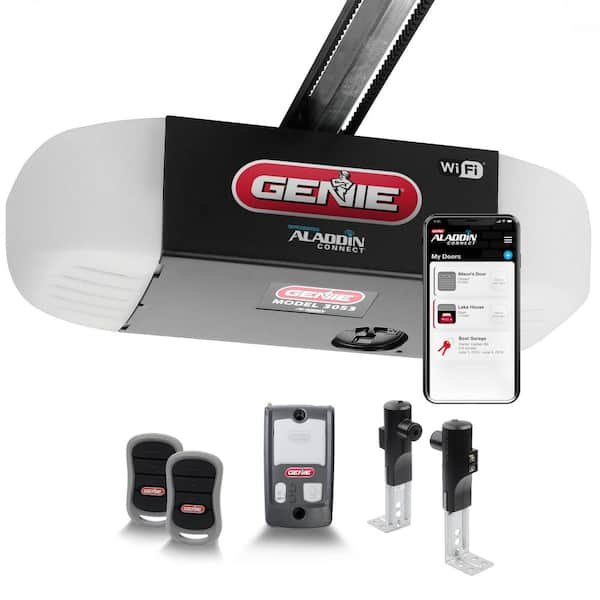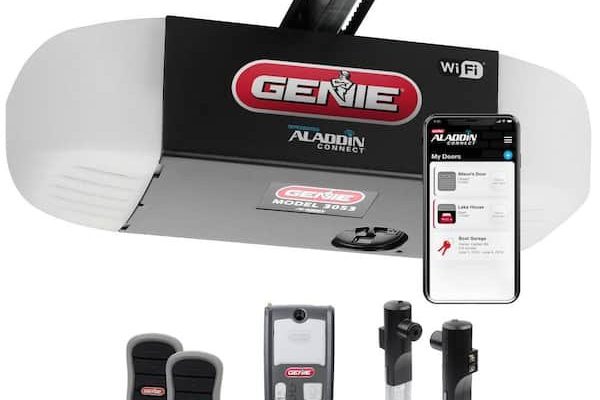
When you think of garage door openers, those boxy devices often come to mind. But whether you’re eyeing brands like Chamberlain or LiftMaster, there’s more to consider than just the label. We’ll walk through what makes a garage door opener quiet and how to pick the right one for your space. So grab a cup of coffee, and let’s dive into this gentle journey.
Why Noise Matters in Your Garage
You might be wondering, “Isn’t a garage door just a garage door?” Well, not quite. The noise generated by a garage door opener can vary significantly. This matters, especially if your garage is attached to your home. Imagine finishing up a late-night project, and that loud rumble wakes up the entire household. Not fun, right?
The constant whirring can be bothersome for the whole family. If you have children or anyone who works night shifts, quiet garage door openers are a game-changer. They minimize disruption, letting everyone enjoy their well-deserved peace without interruptions.
In addition, noise isn’t just about annoyance—it can also indicate an underlying issue with the opener or door mechanism. So it’s not just about finding something quiet; it’s about finding something that functions well, too.
Types of Garage Door Openers
Garage door openers generally come in three main types: chain drive, belt drive, and screw drive. Each has its strengths and weaknesses when it comes to noise levels.
Chain Drive Openers
Chain drive openers use metal chains to pull the door up and down. They are the most affordable option, but they tend to be the loudest. If you’re on a budget or don’t mind a bit of noise, this might be your choice. However, think of those late-night entries.
Belt Drive Openers
Here’s where the magic happens. Belt drive openers use a rubber belt and are known for being quiet and smooth. Imagine gliding through your garage like a whisper. They might come at a higher cost, but investing in a quiet model means fewer disturbances at home.
Screw Drive Openers
These use a threaded rod to lift the garage door. While they’re not as common, they can be quieter than chain drives but often require more maintenance. Think of them as the middle ground between cost and noise.
Key Features to Look for in Quiet Garage Door Openers
When shopping for a quiet garage door opener, keep an eye on specific details that make a significant difference.
- Motor Type: Look for a powerful motor that operates smoothly. A better motor reduces vibrations and keeps noise to a minimum.
- Noise-Reduction Technology: Some openers come with built-in dampeners or enhanced noise-reduction designs. These can help significantly.
- Lubrication and Maintenance: A well-lubricated opener runs quieter. Check if the model allows for easy maintenance.
These features can help make your garage quieter, turning that noisy sanctuary into a peaceful retreat.
Top Quiet Garage Door Openers on the Market
Here are a few options that have received high ratings:
- Chamberlain B970: A belt drive system known for its quiet operation and smart technology, making it easy to control from your smartphone.
- LiftMaster 8500W: This wall-mounted opener saves ceiling space and operates quietly, making it a favorite for attached garages.
- Genie SilentMax 1200: Designed with powerful, quiet belt drive technology, it won’t wake up the whole house while ensuring durability.
These models offer various features, but all are noted for being quieter than the traditional chain-drive options.
Installation Considerations for Quiet Garage Door Openers
Installing a garage door opener can be straightforward, but it’s essential to follow precise steps to ensure everything goes smoothly.
DIY vs. Hiring a Professional
If you’re handy, you might consider installing it yourself. Many manufacturers include user-friendly instruction manuals. However, hiring a professional can save time, and they can ensure the installation is up to code, especially if any electrical work is involved.
Location Matters
Choose a suitable spot for your opener. Installing it too close to walls or doors can lead to noise reverberation, amplifying sound even further. Ensure there’s enough clearance for quiet functionality.
Maintenance Tips for Quiet Operation
To keep your garage door opener running smoothly and quietly, a little maintenance goes a long way.
- Regularly Lubricate Moving Parts: Use garage door lubricant to keep parts moving smoothly. Apply it to rollers, hinges, and tracks.
- Check for Loose Hardware: Tighten all bolts, screws, and hardware regularly to prevent rattling. Even a small loose part can create noise.
- Inspect Safety Features: Ensure your opener has working safety features. This isn’t just about noise; it’s about safety for you and your family.
Keeping up with maintenance is the best way to ensure your opener stays as quiet as possible.
Troubleshooting Common Issues
Even the quietest openers can run into trouble now and then. Here are some common issues and how to fix them.
Noise from Hardware
If you hear odd noises, it could be due to loose hardware. Take time to inspect each component and tighten anything that seems off. If needed, use a rubber washer to dampen noise.
Unresponsive Remote
If your remote doesn’t work, check the battery first. If the battery is good, you may need to re-sync the remote with the opener. Consult your user manual for resetting instructions.
Quiet garage door openers can greatly enhance your home life. By choosing a model that fits your needs and following some straightforward maintenance tips, you can minimize noise and reduce disruptions. Remember, the right whispered opener allows you to glide into your garage, freeing you to focus on what truly matters – unwinding after your day’s activities.
So, as you think about your options, remember it’s not just about lifting and lowering a door; it’s about creating a seamless transition between your garage and your home, noise-free.
